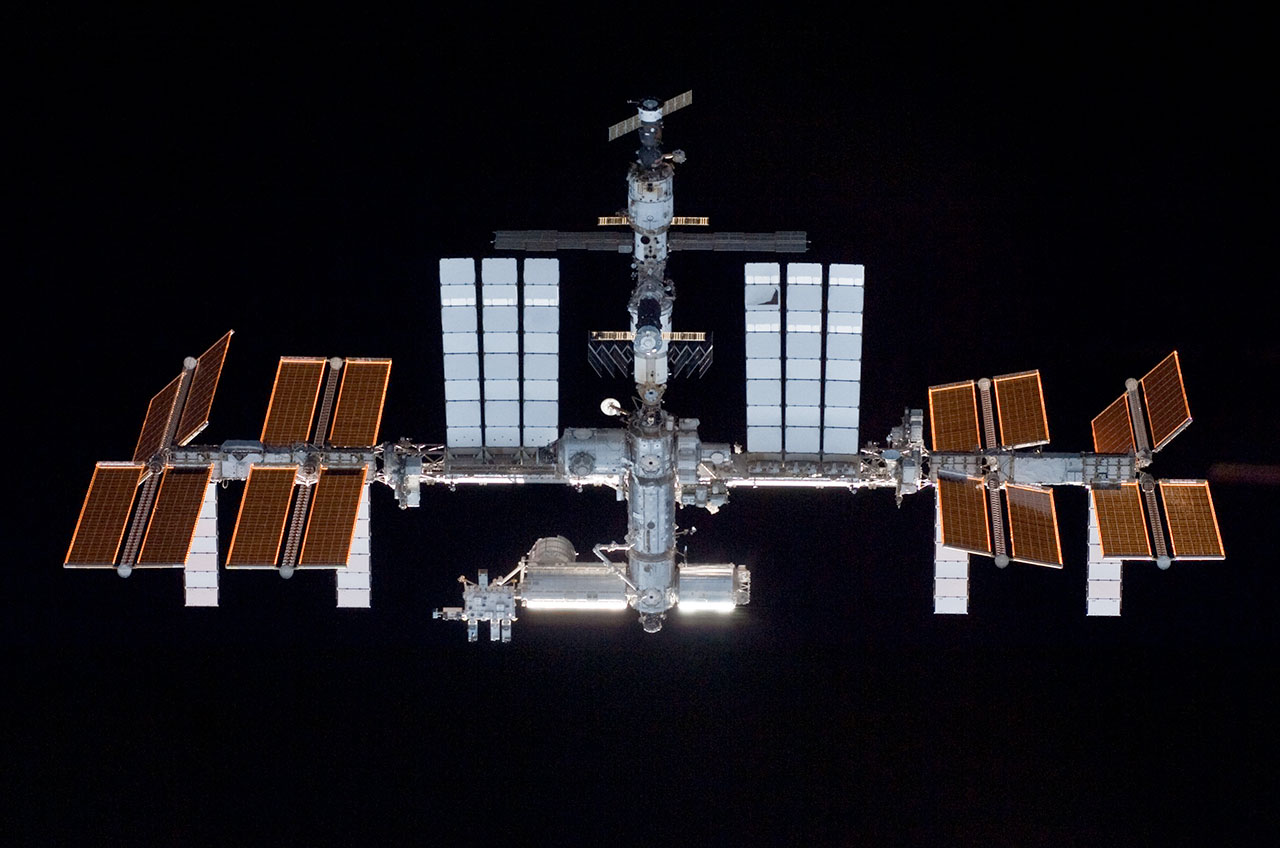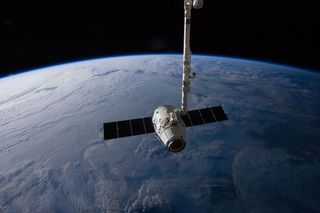NASA Mulls Unplanned Spacewalk to Fix Space Station Computer Outage

Editor's update for April 13: NASA says SpaceX is "go" to launch its Dragon spacecraft to the space station despite a dead computer on the orbiting lab. For our latest update, read: SpaceX 'Go' for Dragon Cargo Ship Launch to Space Station Monday
A backup computer outage on the International Space Station is forcing NASA to discuss plans for a possible spacewalk repair by astronauts in orbit, a move that could delay the planned Monday launch of a commercial SpaceX cargo ship to the orbiting lab.
NASA officials decided Saturday (April 12) to avoid a final decision on whether to delay the unmanned SpaceX Dragon launch as station engineers weigh options to fix the backup computer, which stopped responding to commands Friday and is part of the station's robotics system. SpaceX currently aims to launch the Dragon capsule from Florida's Cape Canaveral Air Force Station at 4:58 p.m. EDT (2058 GMT) on Monday. Station astronauts plan to capture the craft with a robotic arm on Wednesday.
"Station program officials, flight controllers and teams of engineers are working to determine whether there is any risk to launching the SpaceX cargo craft Monday," read a NASA statement released Saturday. The main issue is whether the space station's robotics system has enough redundancy without the backup computer. [Quiz: Do You Know the International Space Station?]

Because the station's robotic arm is vital to capturing the Dragon spacecraft and attaching it to the space station, NASA is studying the issue extremely closely. The space agency rescheduled two Sunday morning press conferences on the upcoming SpaceX mission to later Sunday afternoon while engineers discuss their options.
Astronauts on the space station would have to perform a spacewalk to fix or replace the computer. The MDM computer repair is one of 12 scenarios NASA astronauts regularly train for before flying to the space station.
The problem cropped up late Friday, when a backup computer known as a Multiplexer-Demultiplexer, or MDM for short, stopped responding to commands. The device is located on the station's exterior and serves as a backup controller for the Mobile Transporter, a railcar that moves the Canadarm2 robotic arm along the space station's backbone-like main truss.
Get the Space.com Newsletter
Breaking space news, the latest updates on rocket launches, skywatching events and more!
The primary computer that controls the station's Mobile Transporter is working perfectly, NASA officials wrote in the status update. But the backup computer, called EXT-2, failed a routine health check on Friday.
The failed MDM backup computer is one of more than a dozen on the station's exterior "that route computer commands to various systems on the outpost," according to the NASA statement.
SpaceX's current Dragon mission to the space station has been delayed since March due to an unrelated damage to ground radar equipment used during launches from the Cape Canaveral Air Force Station. This mission, called Commercial Resupply Services 3, is SpaceX's third resupply mission for NASA since 2012 under a $1.6 billion contract.
If SpaceX does not launch its Dragon mission on Monday, the mission could potentially target a backup launch day of Friday, April 18. But that will depend on any NASA plans for a spacewalk repair.
SpaceX plans to fly at least 12 Dragon cargo missions to the space station for NASA under its contract. Another company, the Dulles, Va.-based Orbital Sciences Corp., has a $1.9 billion deal with NASA to provide eight resupply flights using its own Antares rockets and unmanned Cygnus spacecraft.
Email Tariq Malik at tmalik@space.com or follow him @tariqjmalik and Google+. Follow us @Spacedotcom, Facebook and Google+. Original article on Space.com.
Join our Space Forums to keep talking space on the latest missions, night sky and more! And if you have a news tip, correction or comment, let us know at: community@space.com.

Tariq is the Editor-in-Chief of Space.com and joined the team in 2001, first as an intern and staff writer, and later as an editor. He covers human spaceflight, exploration and space science, as well as skywatching and entertainment. He became Space.com's Managing Editor in 2009 and Editor-in-Chief in 2019. Before joining Space.com, Tariq was a staff reporter for The Los Angeles Times covering education and city beats in La Habra, Fullerton and Huntington Beach. In October 2022, Tariq received the Harry Kolcum Award for excellence in space reporting from the National Space Club Florida Committee. He is also an Eagle Scout (yes, he has the Space Exploration merit badge) and went to Space Camp four times as a kid and a fifth time as an adult. He has journalism degrees from the University of Southern California and New York University. You can find Tariq at Space.com and as the co-host to the This Week In Space podcast with space historian Rod Pyle on the TWiT network. To see his latest project, you can follow Tariq on Twitter @tariqjmalik.
Most Popular
